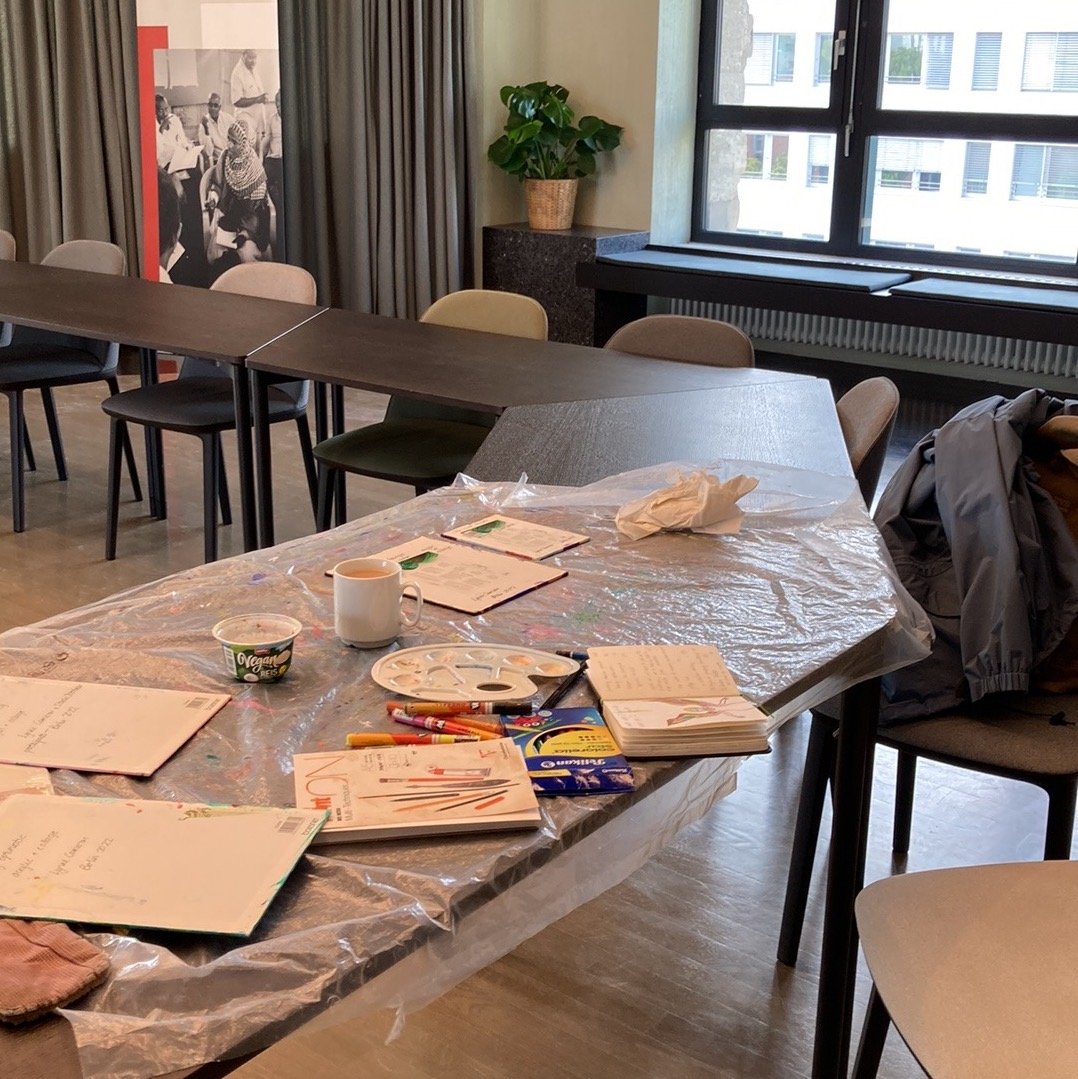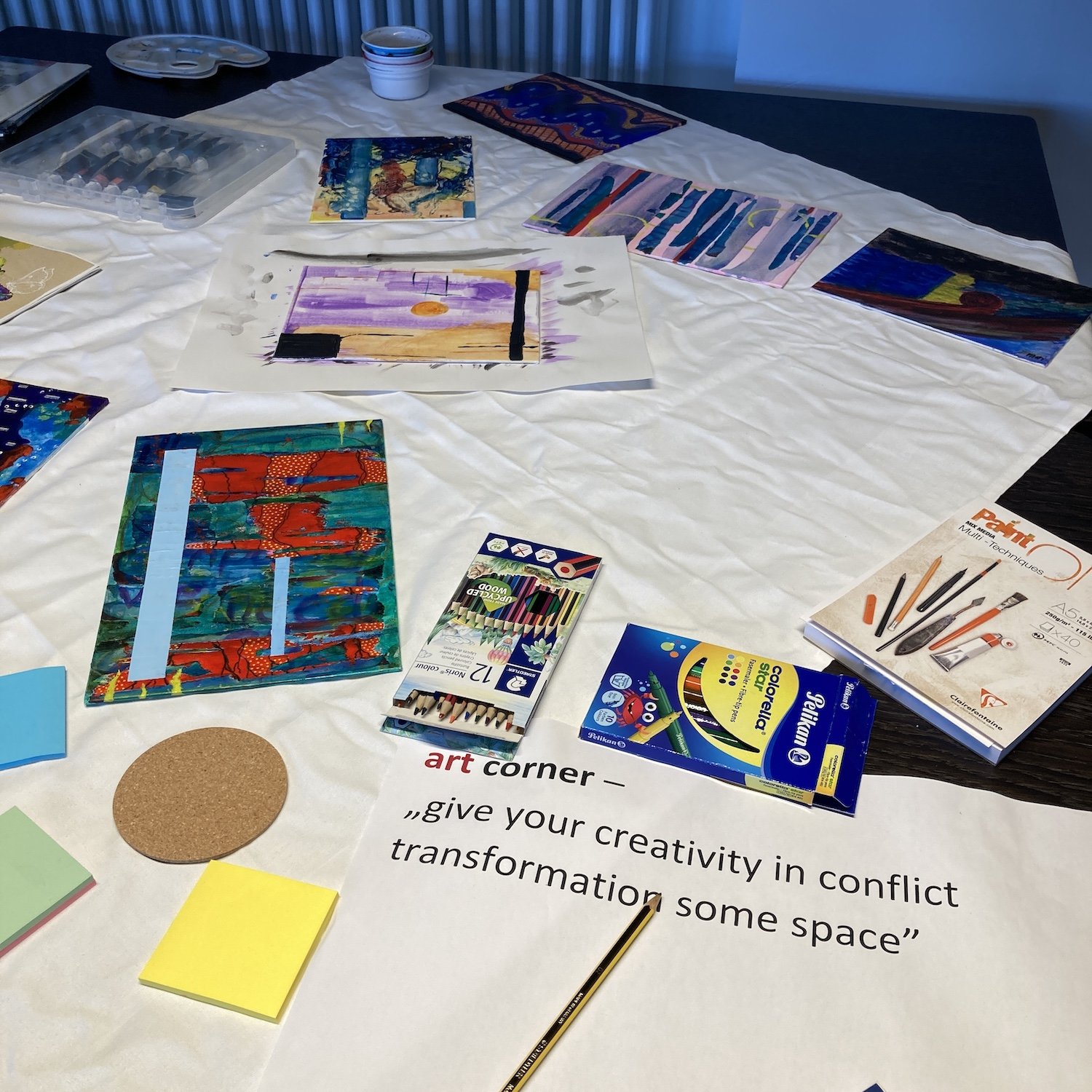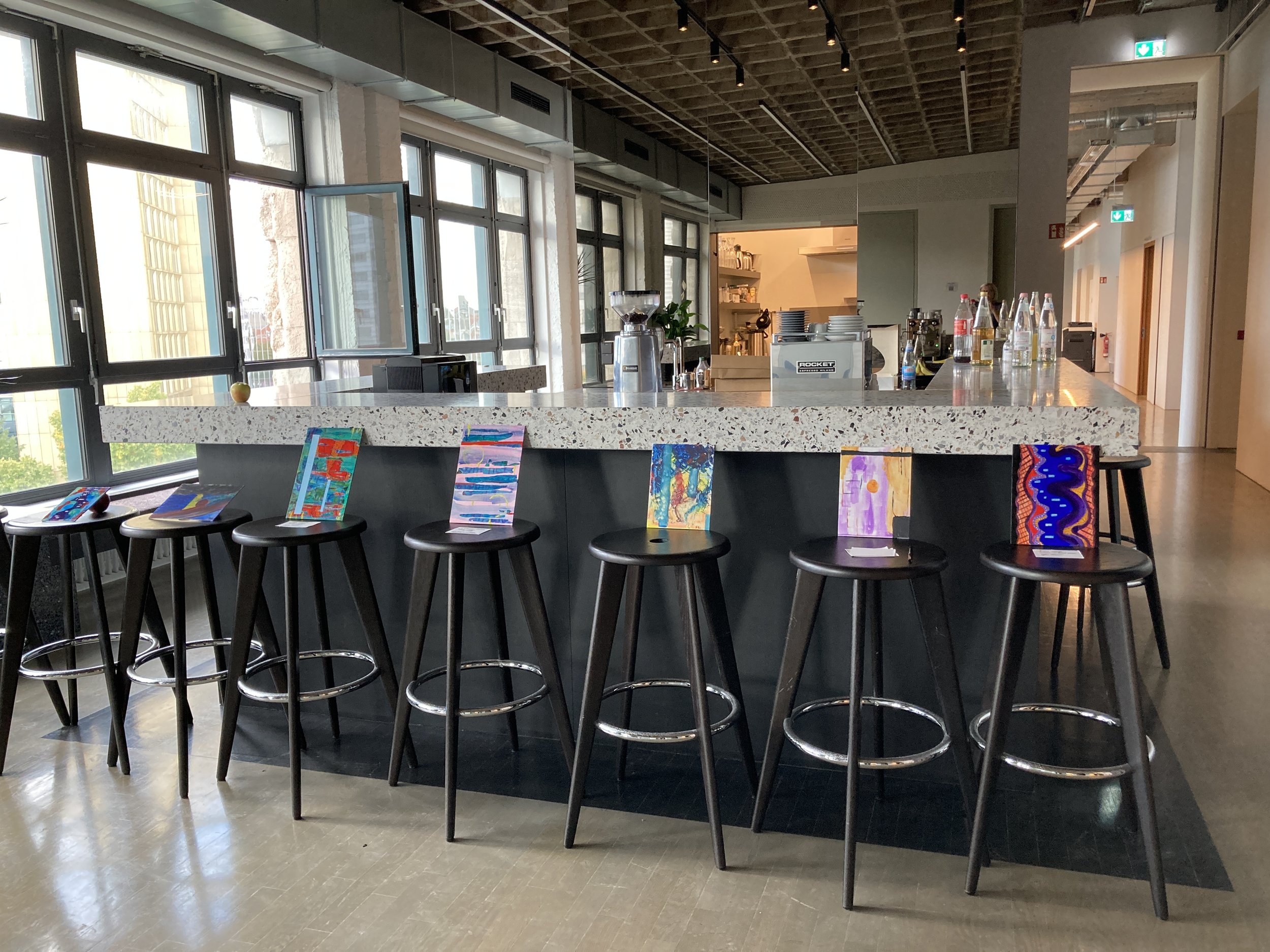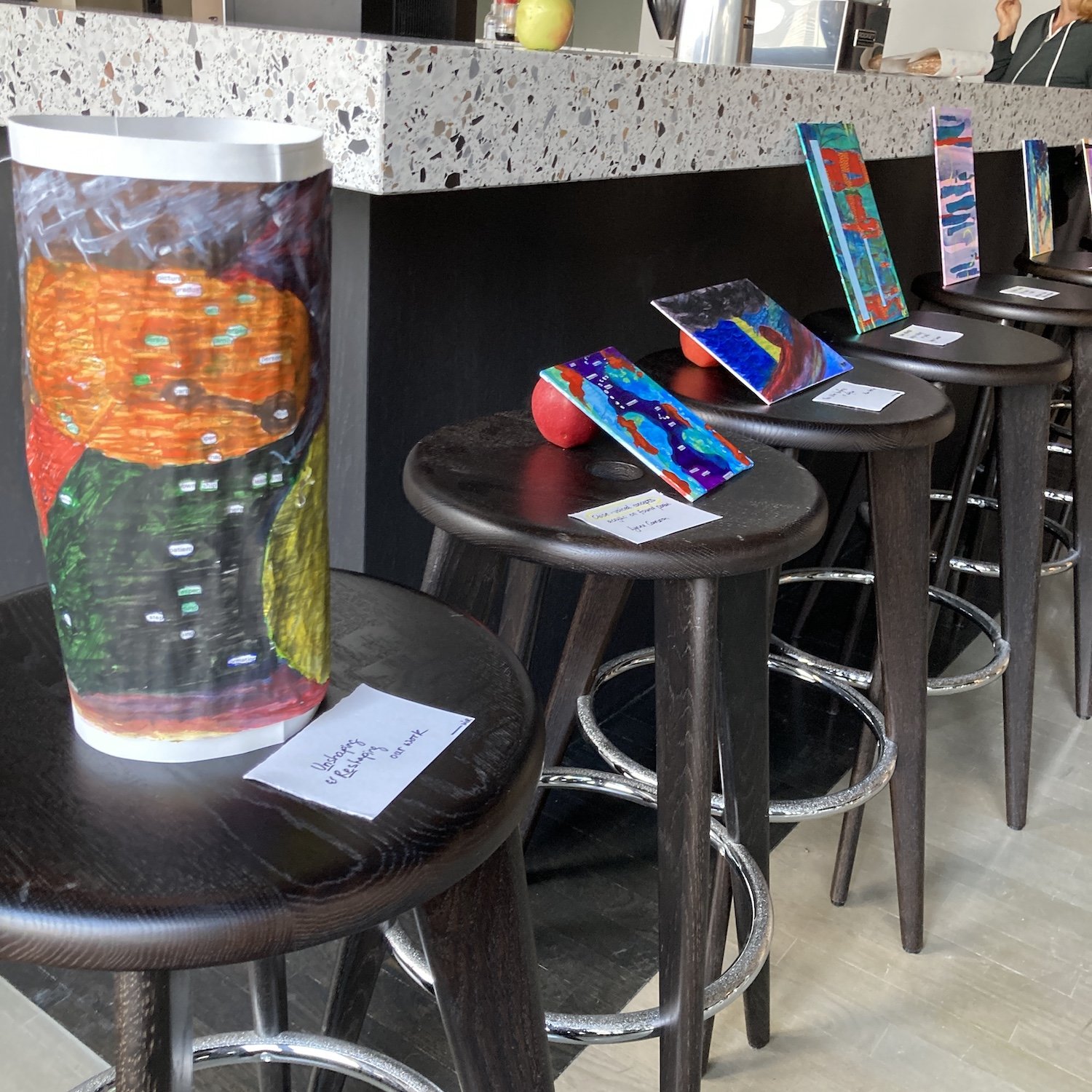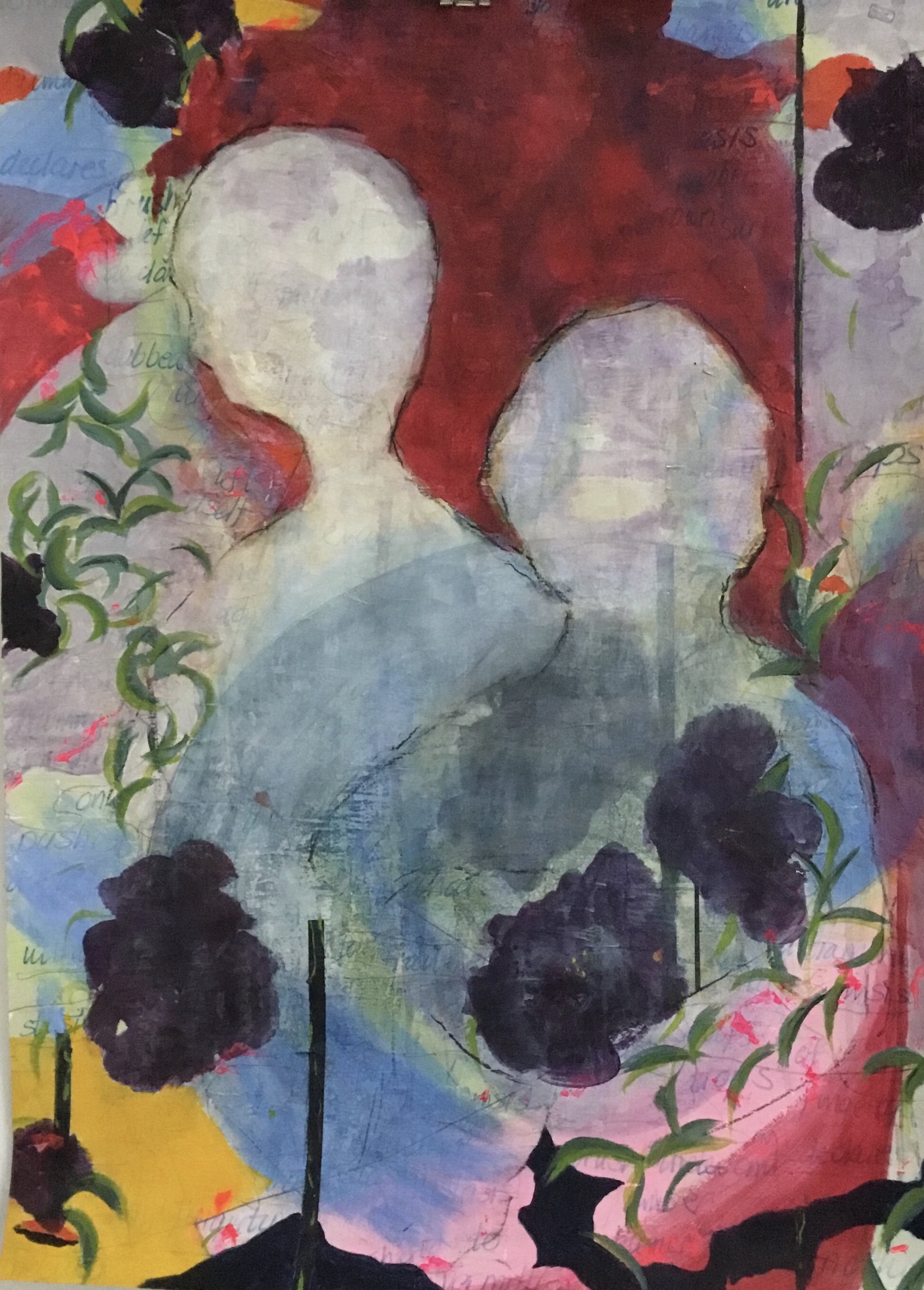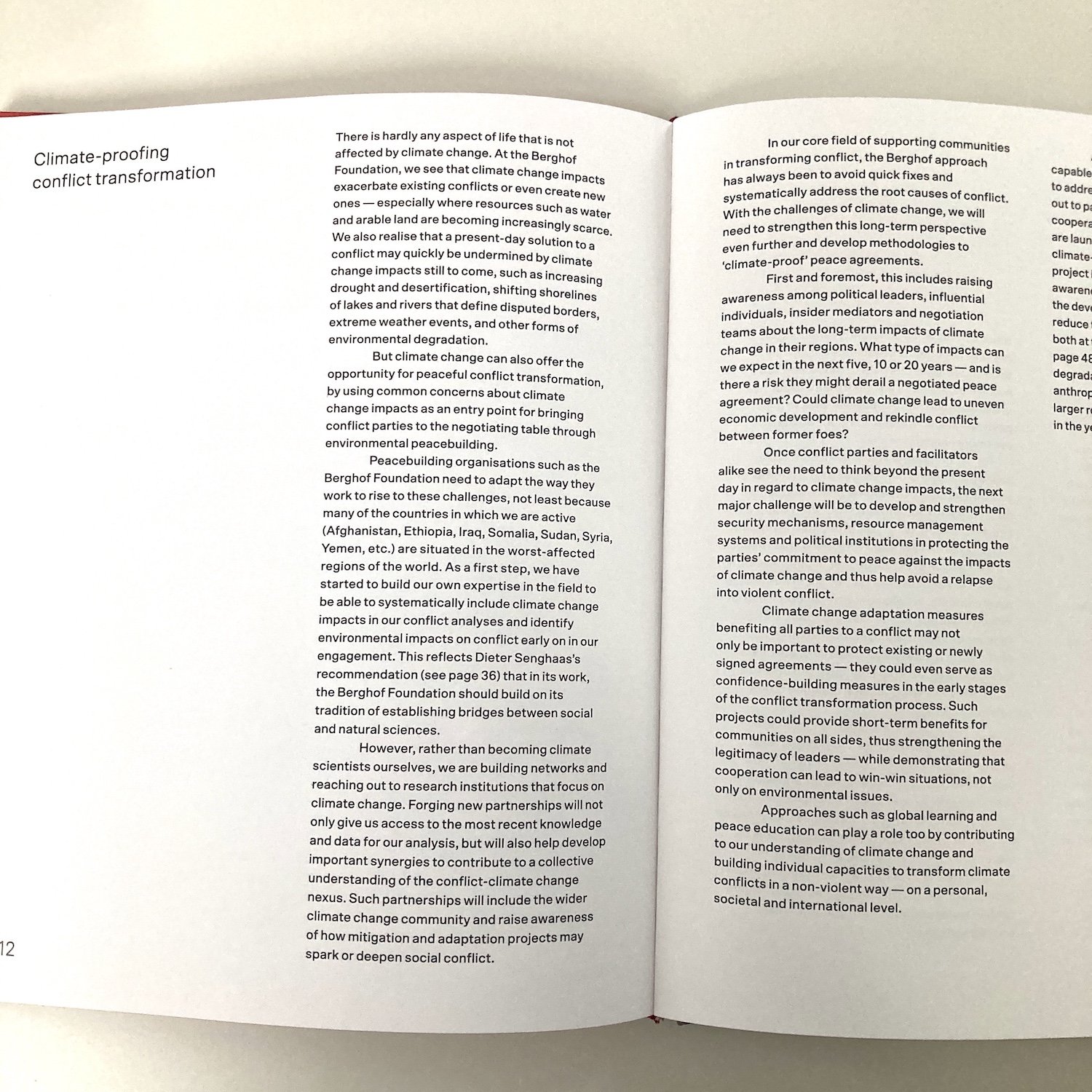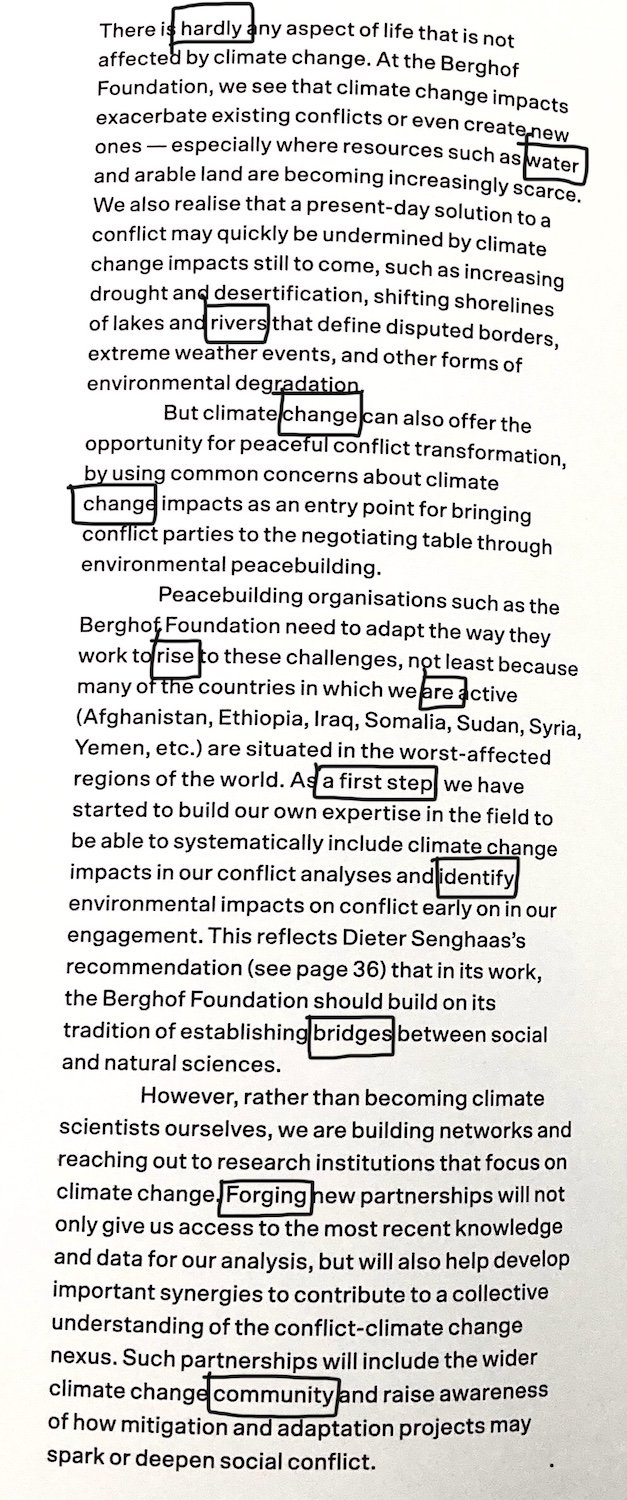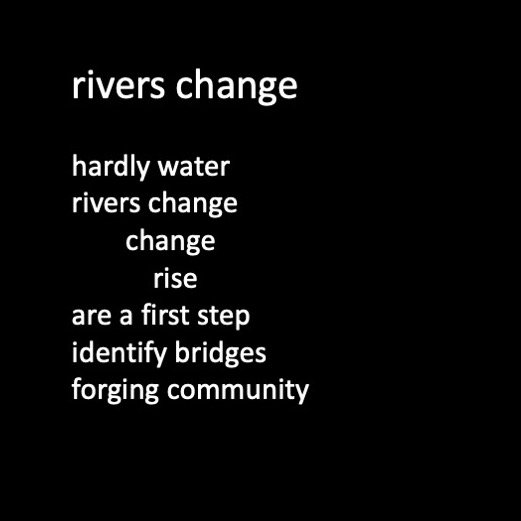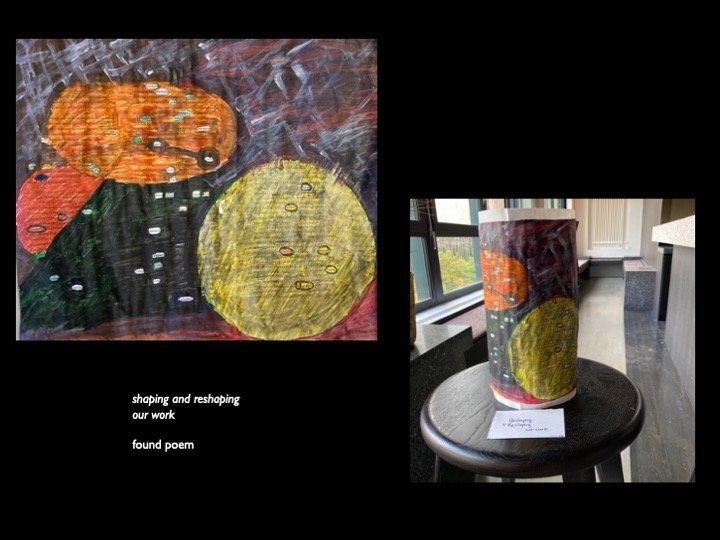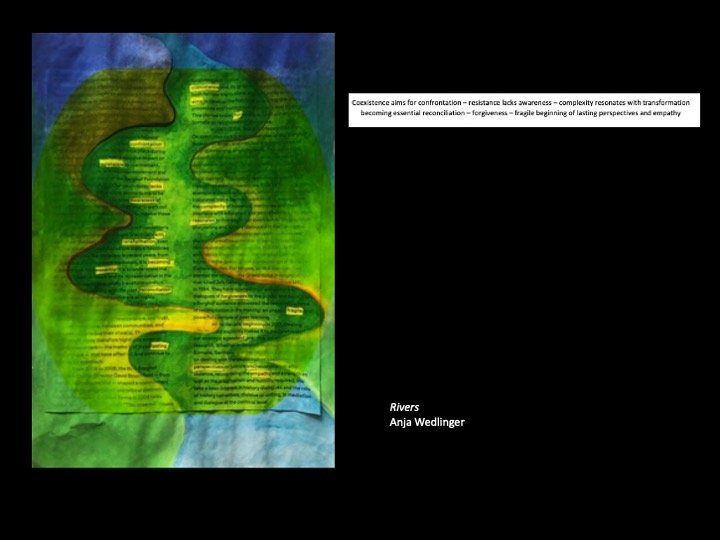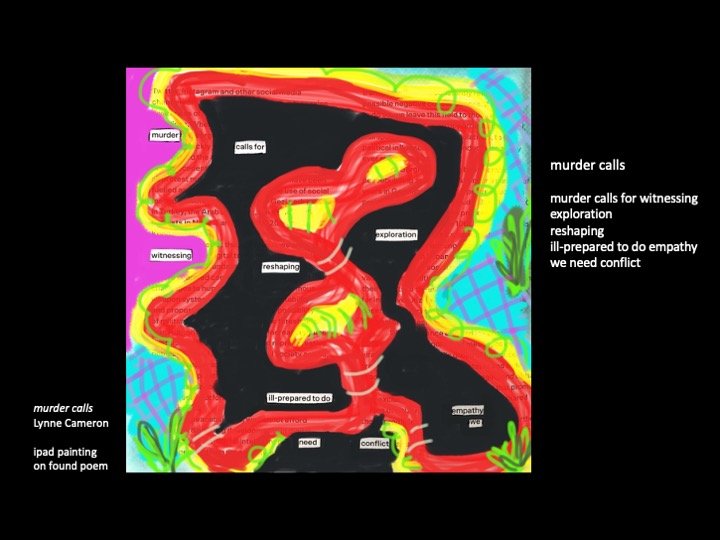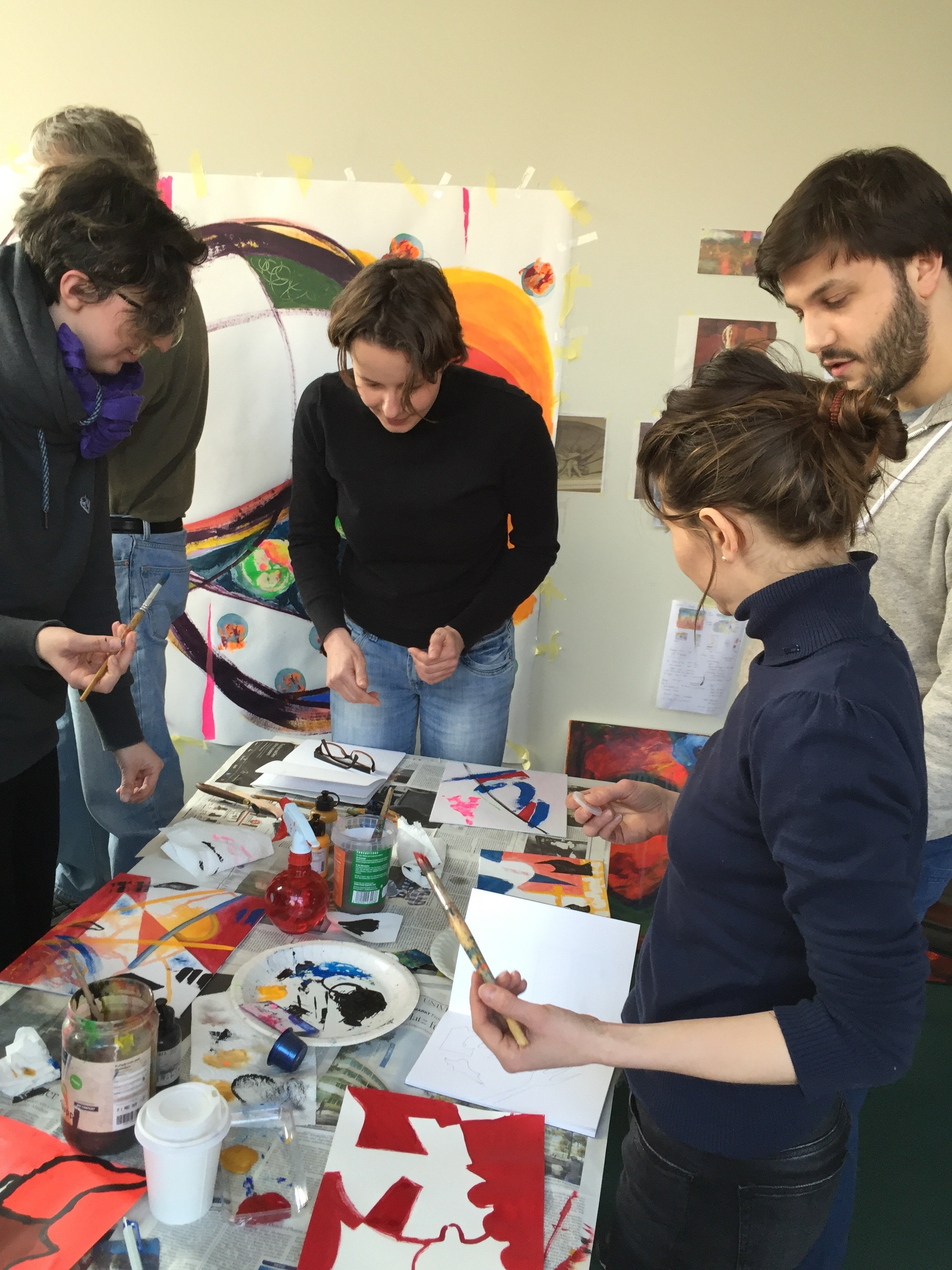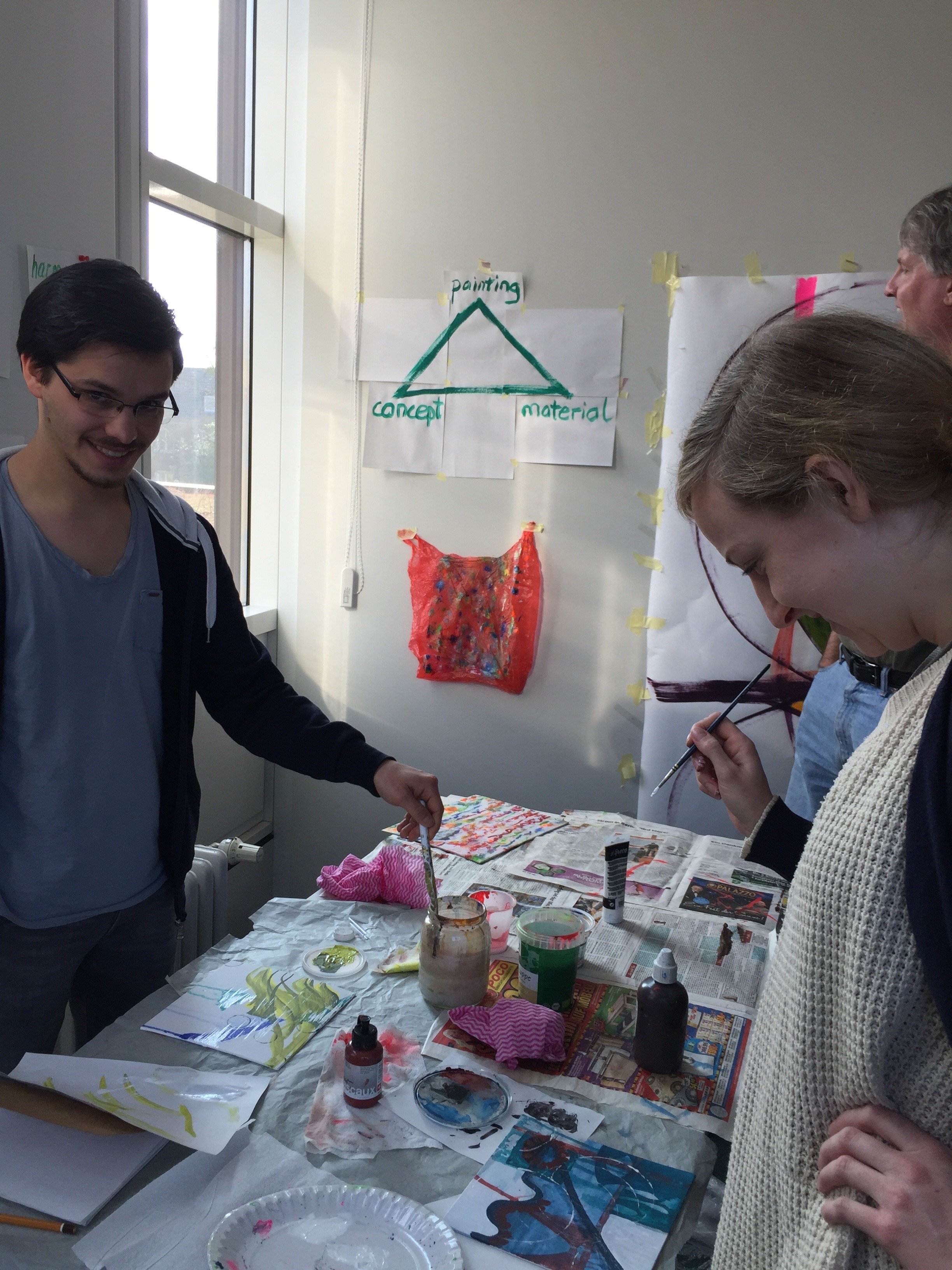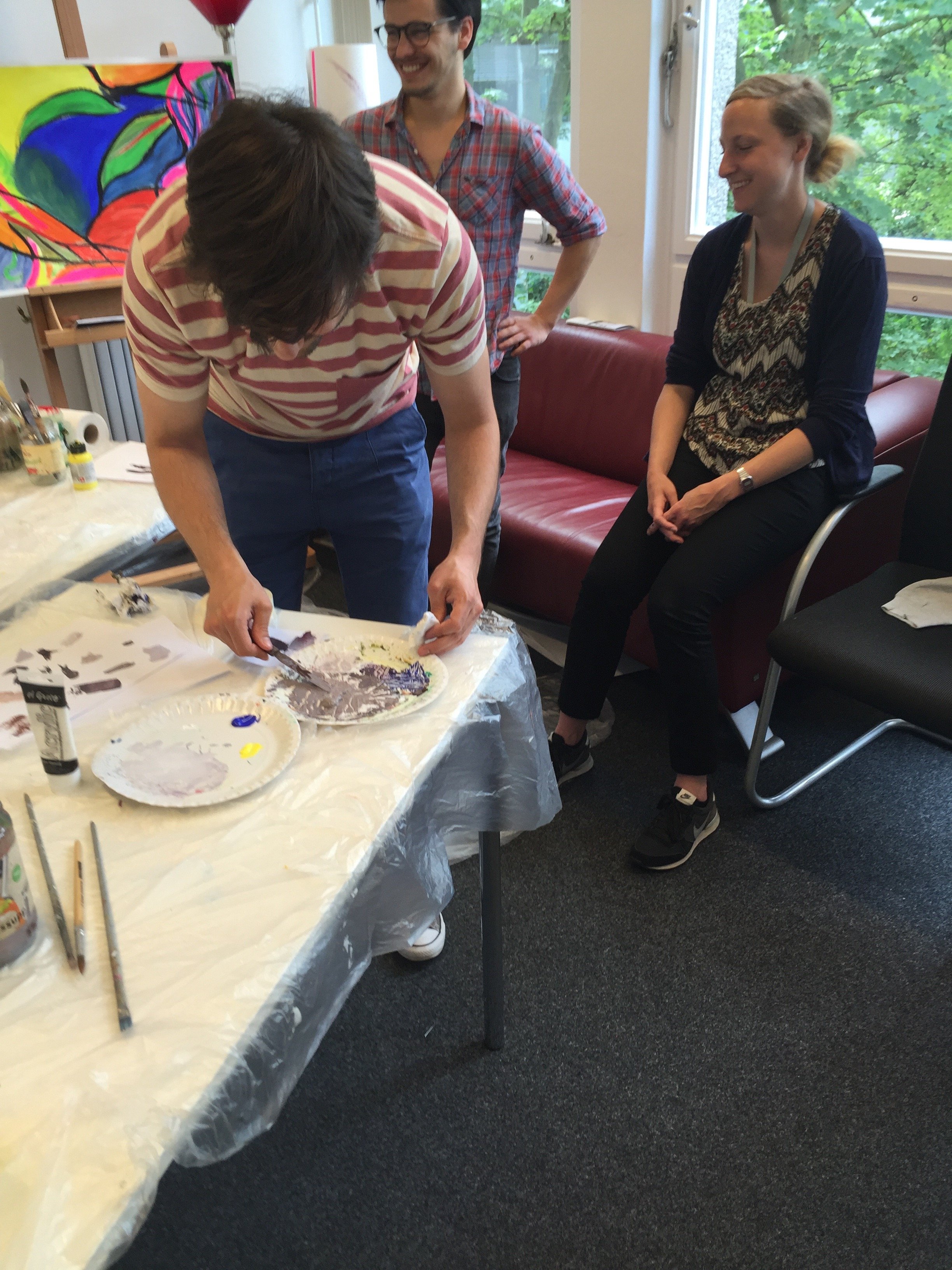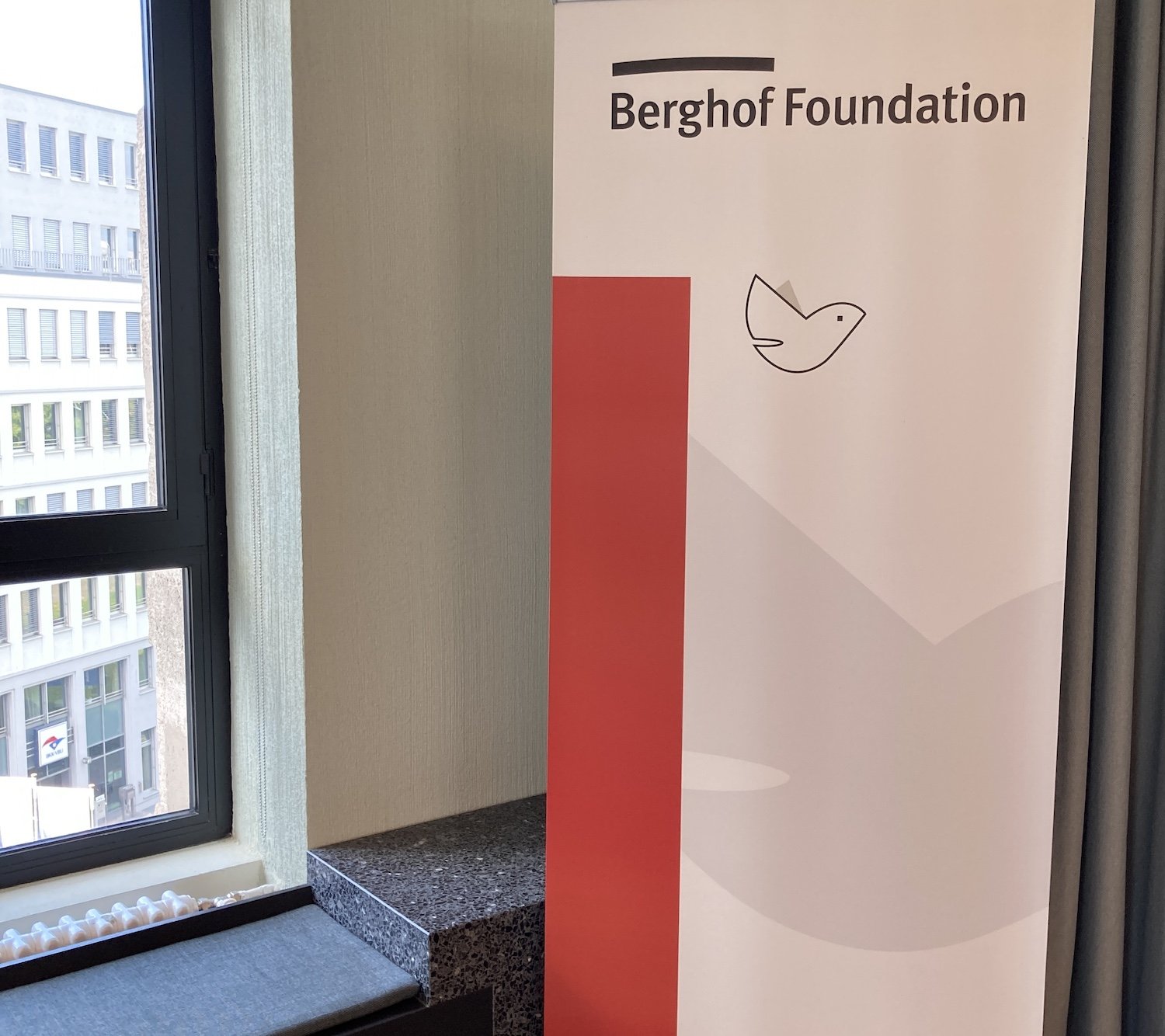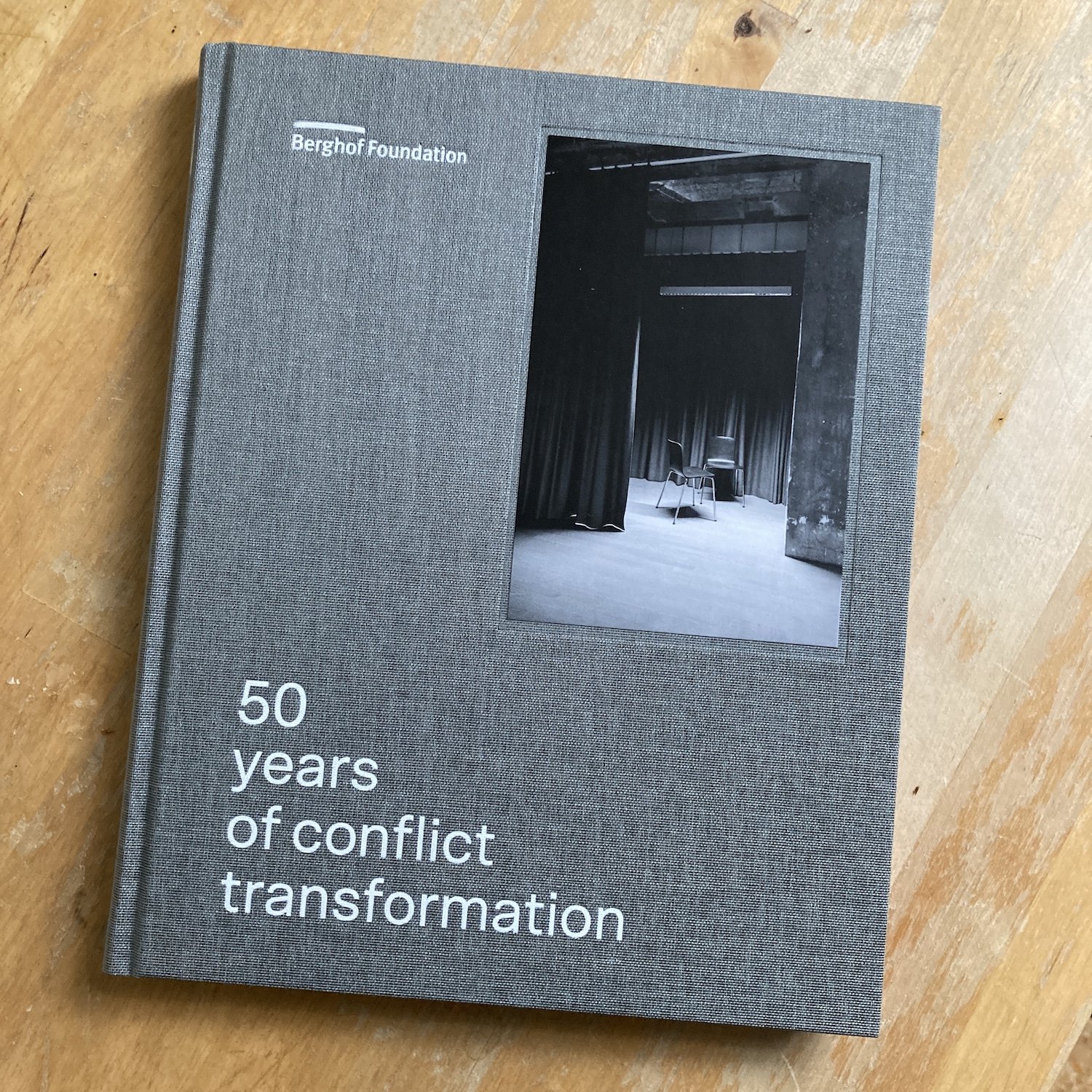At the end of my residency at the Berghof Foundation we held an event to celebrate what we’d made and discuss what we’d learnt.
It was interesting for me throughout my stay to hear about the creative activities of Berghof staff and how creativity inhabits people’s lives. I came with my painting practice and poetry; other people had experience in, and love for other art forms: theatre, photography, music. In our conversation, we talked about the performative arts and how they might offer ways of working with others to reframe situations and emotions.
Painting can be performative and collaborative, but is often a more private and silent activity. It is non-verbal, and there’s a power, I find, in losing oneself in colour, line and form. While busy with the material and mixing of paint with water, the body occupied with brushing and looking, the mind is quietened for a time and returns to some kind of equilibrium. From the time ‘lost in painting’, we can emerge invigorated and somehow more balanced. The activity is, in itself, restorative; the end result of the painting serves as a reminder of process and is not required to be more than that.
An edited summary of our conversation can be found here
https://berghof-foundation.org/news/transformation-through-art-talk-with-lynne-cameron
Meanwhile, the discussion around art, creativity, and conflict transformation continues …
An occupation of the body. Lynne Cameron, 2022. Acrylic, pencil and charcoal on collaged handwriting, 61 x 84 cm.
